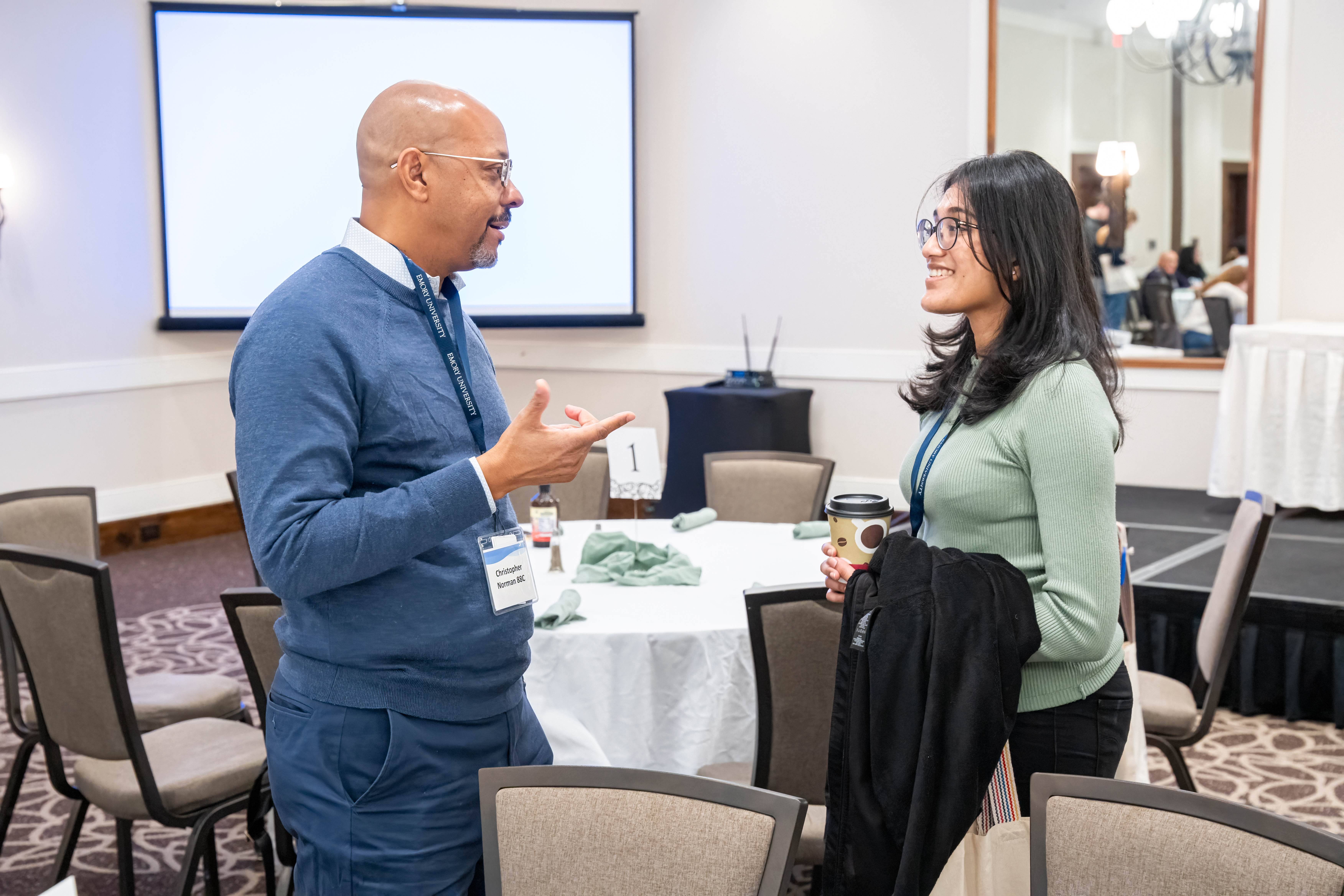Christopher Norman, creative leadership in action

Creativity and leadership are good buzzwords for a reason. As the theme for Emory Scholars programming this past year, they guided in-depth conversations with innovators in a diverse array of industries.
Looking down the barrel of unprecedented urban transformation – and the accompanying consequences facing affordable housing, public transit, poverty, and gentrification, to name a few – the need for creative leaders becomes especially obvious.
Christopher Norman is one such leader.
The Executive Director of the Metro Atlanta Land Bank (MALB) and President of the Georgia Association of Land Bank Authorities (GALBA), Norman has facilitated exponential growth in the capacity and functionality of Georgia land banks.
Land banks are local public or nonprofit organizations that acquire vacant or distressed property with the goal of creating productive residential, commercial, industrial, or greenspace land.
“I describe it as an off-balance sheet real estate company,” Norman explains, “but the priority is: what does your community need?”
In 1991, Atlanta was only the fourth city in the country to form a land bank. Now, there are over 150 throughout the US, including thirty in Georgia.
Initially, land banks responded to the urban disinvestment caused by suburbanization and white flight by revitalizing blighted property. But public land was seen as a liability, not an asset, and viable options for redevelopment were minimal.
“We're evolving to be more [focused on] creating affordability to keep up with the pace of growth,” Norman says.
By 2008, Norman was at the helm of this organizational evolution. He oversaw significant operational and programmatic restructuring, including a statewide effort to reform and modernize the land banks that resulted in the passage of the Georgia Land Bank Act of 2012.
The programmatic advancements made under Norman’s tenure are unprecedented innovations.
In the case of one derelict apartment complex, the fire department was invited to use the property to conduct live fire training exercises before the structure was torn down and redeveloped into an affordable senior living facility.
From the Land Banking Depository Program to a formalized partnership with a community land trust, the MALB is forging new ground in the global landscape of land banking.
“I’ve had people from Tokyo come visit us, I’ve had people from London and Puerto Rico come visit us,” Norman says. “And it’s not just about land banks. People are approaching it from the economics of land… all these interplays of vibrant ecosystems of development.”
In simpler terms, “controlling some of the dirt really does matter.”
For Norman, innovations and leadership aren’t bullet points for a resume, but recurring choices driven by curiosity that go back to his time at Emory.
“Being from Atlanta, going to Emory across town… I really enjoyed the resources and opportunities that pushed you to dream big,” Norman says.
He joined film club, played baseball as the team moved from a club to varsity sport, served on the Emory traffic court, and established Emory’s chapter of Omega Psi Phi, one of the Divine Nine historically African American fraternities and sororities.
“Coming to Emory was a big change,” Norman says. “I tried to get involved in as many things as possible. I was there to experiment.”
Originally enrolled in the math and engineering dual degree with Georgia Tech, he opted to explore more interdisciplinary interests while completing his math degree.
“I was interested in business, the private sector, public sector, and also education,” Norman says. “I’ve always been a curious person.”
At the Scholars' Annual Retreat this January, Norman embodied the theme of creativity and leadership for current scholars - who eschewed arriving on time for their required workshop in favor of staying at his table.
"We discussed leadership as an action; leadership is not based on position," Norman says. "I think people underestimate their ability to make an impact.”
Without the wisdom of experience and curiosity-honed intuition from someone like Chris Norman, it's easy to flatten creativity and leadership into meaningless abstraction.
“When speaking with Chris, I definitely saw how he made it a priority to connect his interests of business development and social impact,” explains Shruti Nemala, a rising junior majoring in economics and business.
“Our conversation cemented my desire to work in the economic development field in the future, being able to help both the private and public sectors,” says Nemala.
“It was cool to see that whatever I was talking about was intriguing enough that they actually wanted to continue to talk to me,” Norman says.
“For me, it’s not a chore to try to go back and try help where I can and have some level of connectivity… I do feel that connection with the campus. I've always felt that connection, I think the Scholars Program helped to drive that home.”